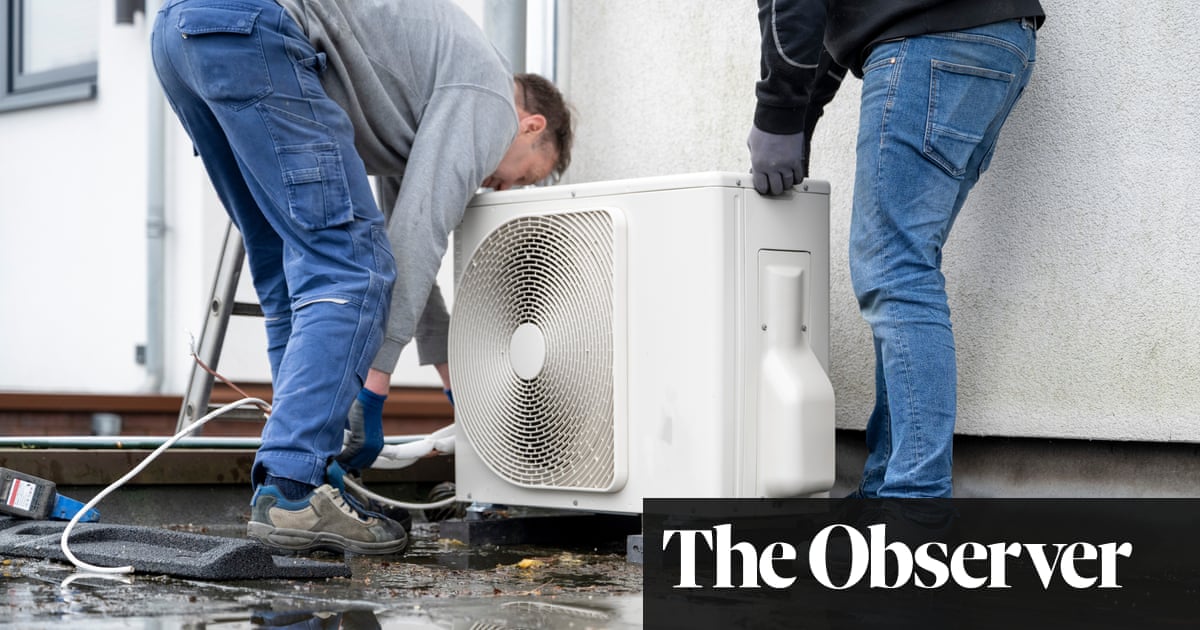
Two years ago I signed a £14,409 contract for a heat pump installation and paid the deposit. Three weeks after the pump was fitted, the company that installed it, Omni Heat and Power, went into liquidation. It had been due to return to repair damage to the pump’s casing, and I had not yet paid the balance. I paid the pump manufacturer Grant Engineering UK to do the repairs and, as I had not received the promised seven-year guarantee from Omni, I decided to purchase an extended warranty from Grant.
Within two months, the pump developed a fault and kept switching off, leaving us without heating or hot water. Several technician visits and a £1,000 flushing of the system did not help. Grant Engineering blamed the installation rather than the equipment, and refused to honour the warranty or advise on remedies.
It seems heat pump installers and manufacturers are not in an integrated supply chain as for a gas boiler system, and customers with a problem can be left with nowhere to turn if the installer goes bust.
GM, Northampton
Many householders trying to do their bit to save the planet find themselves cold and out of pocket as the attrition rate of green energy installers, be they in solar panels or heat pumps, is high. Protection can be elusive if they vanish before they have registered an installation. Your SOS, sent in April, set both of us on a six-month odyssey through a blizzard of acronyms to discover how customers, whose installer goes bust before a job is complete, can get redress.
First, I contacted Grant Engineering. I got no response. I then tried the heating trade body Oftec, whose logo was emblazoned on Omni’s now defunct website, and which offers a six-year warranty for work carried out by its members. Oftec told me Omni had been registered for oil boilers, but not heat pumps, so you were not covered.
It suggested I try MCS Certified, which sets product and installation standards for renewable technologies. Companies who are certified by MCS sign up to a quality assurance scheme. Crucially, however, their certification is removed if they botch work or cease trading. MCS said it couldn’t step in as Omni’s certification was removed after it went into liquidation, but it offered to talk you through options.
It told you that, mercifully, Omni had registered your installation just days before it went bust and so you were covered by an insurance policy designed to protect customers with problems when a firm ceases to trade. The relief was short-lived.
When you tried to claim through the insurer, you discovered that because Omni had ceased trading before you could pay the final instalment and sign off the fitting, you were ineligible.
In the meantime, I contacted the other trade body, the National Inspection Council for Electrical Installation Contracting (NICEIC), whose logo was displayed by Omni, and which steps in as a last resort via its platinum promise. That’s when things started to move, although as glacially as your failing heat pump.
The NICEIC said it would only help once you had tried the insurance route and made a chargeback claim through your credit card issuer under section 75 of the Consumer Credit Act.
You duly made a chargeback claim and, after a six-week wait, were refused. We were now into August, four months after you had initially asked for help, and 19 months after your pump packed up.
The NICEIC proved as good as its word. It dispatched a technician who diagnosed dodgy installation and a repair has been booked for the end of this month at no cost to you. You might yet be warm this winter.
I advise anyone else in your predicament to contact MCS Certified, which will explain your options and check out accreditations and guarantees before choosing an installer.
And now I realise it’s not just authors who are a danger on our roads …
Recently, I highlighted the plight of a lecturer in tax and accountancy who was banned by John Lewis Finance from renewing his car insurance because, on the side, he wrote books on both racy subjects. Why, I wanted to know, were authors too dangerous to cover?
Fellow author and broadcaster RML believes she has the answer. “I, too, was refused,” she writes, “and the reason, I was told by a broker, is that insurers feared that I might be carrying famous people in my car.”
The possibility of a celebrity in the passenger seat can stymie film editors, too, as Londoner CG discovered when he questioned why his renewal had been declined.
If famous passengers are too risky, how do celebs stay legally on the road? I’m beginning to see why Taylor Swift had a police escort!
Email [email protected]. Include an address and phone number. Submission and publication are subject to our terms and conditions